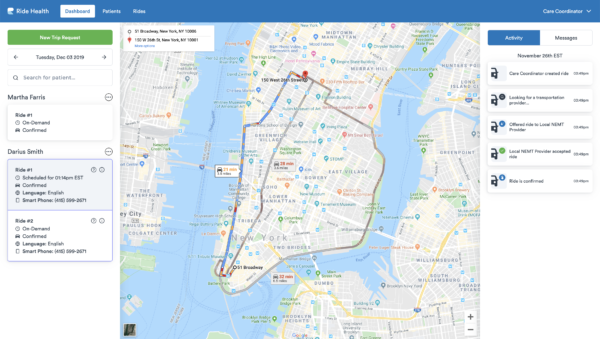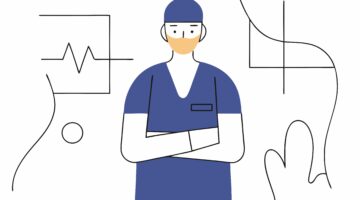
Ride Health’s platform allows health systems to coordinate transportation for patients. It can also help them track a patient’s ride and accessibility needs.
New York-based startup Ride Health closed a $6.2 million seed funding round led by New York-based Activate Venture Partners. The company helps hospitals coordinate patient transportation, whether that’s hailing a ride from a non-emergency medical transportation company or rideshare services like Uber.
An estimated 3.6 million patients miss or delay their care due to transportation barriers, according to a 2005 study published in the Journal of Transportation Research.
“It’s particularly crucial that they access that care in a timely manner,” Ride Health Founder and CEO Imran Cronk said. “Our role is to help hospitals and health plans build enterprise transportation programs or strengthen existing programs.”
Cronk first began looking into medical transportation programs eight years ago, while he was volunteering at a hospital.
“I ended up having to drive somebody home near midnight because he was effectively stranded,” Cronk said. “I realized there was this opportunity to connect the dots.”
Ride Health’s proposition is to help health systems reduce losses from appointment no-shows or delayed hospital discharges. For example, in a pilot with Penn Medicine, the company was able to reduce the average length of stay for hospital patients by six hours.
“Hospitals have a big problem where patients are medically clear for discharge at 9 a.m., but not able to have anyone pick them up until the end of the day,” Cronk said. “They end up spending six, seven or eight extra hours in a hospital bed when they don’t need to be there.”
Ride Health also worked with Virtua Health System in New Jersey, reducing the number of no-shows for oncology appointments.
The company’s software takes in information about a patient, such as their preferred method of contact and if they have a wheelchair. It can also integrate with dispatch systems, allowing health systems to send assignments to transportation providers, and providing real-time trip updates to a patient’s care team or loved ones.
Ride Health does not hire its own drivers, but instead layers its software on top of existing medical transportation companies. Currently, health systems, not patients, are the ones paying for the rides.
Growth plans
Ride Health supports transportation benefit management for health plans in 10 states. It also supports transportation programs for the American Cancer Society.
“It’s been a rapid expansion over the last few quarters here,” Cronk said. “We’re thinking about what Uber did for the taxi industry, brought dynamic pricing based on demand, there might be an opportunity to do that on a large scale for medical mobility.”
Activate Venture Partners, a New York-based firm that invests in technology companies, led the funding round. Other investors included Newark Venture Partners, BioAdvance and Startup Health.
“Transportation plays a critical role in lowering the cost of healthcare by ensuring patients get the care they need when they need it,” Activate Venture Partners Managing Partner Todd Pietri said in a news release. “Ride Health empowers healthcare providers, payers, and patients to leverage technology and data to improve health outcomes at a lower cost. We feel fortunate to be in business with an innovative company addressing a large and attractive market with a powerful value proposition.”
Photo credit: Ride Health










